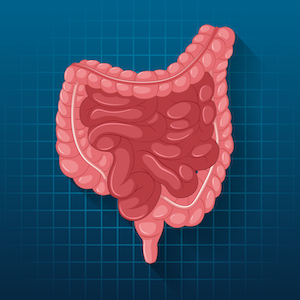WSES stage 2b complicated colonic diverticulitis in elderly patients: long-term outcomes of conservative treatment

All claims expressed in this article are solely those of the authors and do not necessarily represent those of their affiliated organizations, or those of the publisher, the editors and the reviewers. Any product that may be evaluated in this article or claim that may be made by its manufacturer is not guaranteed or endorsed by the publisher.
Authors
Managing complicated diverticulitis in the elderly is challenging due to comorbidities and the nature of diverticulitis. The combined World Society of Emergency Surgery (WSES)/Italian Society of Geriatric Surgery (SICG)/Italian Hospital Surgeons Association (ACOI)/Italian Emergency Surgery and Trauma Association (SICUT)/Academy of Emergency Medicine and Care (AcEMC)/Italian Society of Surgical Pathophysiology (SIFIPAC) guidelines for diagnosing and treating acute left colonic diverticulitis in older patients advise against non-operative treatment for stage 2b due to the limited evidence supporting non-operative management. This retrospective single-center study describes the conservative management and outcomes of 27 elderly patients (17 males) with WSES stage 2b acute colonic diverticulitis (ACD) treated at Parma University Hospital from January 1, 2012, to December 31, 2019. Patients were divided into two groups according to C-reactive protein (CRP) levels: group 1 (CRP<150 mg/dL; 15 patients); group 2 (CRP≥150 mg/dL; 12 patients). The mean age was 77.8±6.1 years (range 68-92). The average white cell count was 12.6±8.8×109/L (range 1.9-50.2) in group 1 and 11.24±7.89 (range 3.5-50.25) in group 2. The mean CRP level in group 1 was 96.8±34.4 mg/dL, and in group 2, it was 195.1±39.9 mg/dL. All patients were treated with bowel rest and antibiotics. The average length of stay was 8.8±8.9 days for group 1 and 8.0±3.8 days for group 2. Every patient was discharged from the hospital uneventfully. During a follow-up period of 72.1±28.4 months, new episodes of acute diverticulitis were documented in 5 patients (18.5%), with only 1 patient (3.7%) necessitating surgical intervention. This small series on stage 2b diverticulitis in the elderly shows that, in selected cases, conservative treatment can be a safe and effective treatment, avoiding unnecessary surgery that leads to higher morbidities.
How to Cite

This work is licensed under a Creative Commons Attribution-NonCommercial 4.0 International License.









